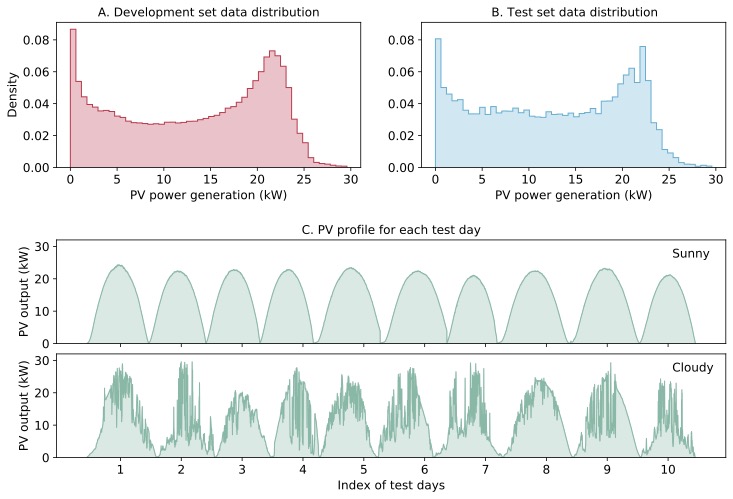Sky-image-based solar forecasting using deep learning with multi-location data: training models locally, globally or via transfer learning?
Solar forecasting from ground-based sky images has shown great promise in reducing the uncertainty in solar power generation. With more and more sky image datasets open sourced in recent years, the development of accurate and reliable deep learning-based solar forecasting methods has seen a huge growth in potential. In this study, we explore three different training strategies for solar forecasting models by leveraging three heterogeneous datasets collected globally with different climate patterns. Specifically, we compare the performance of local models trained individually based on single datasets and global models trained jointly based on the fusion of multiple datasets, and further examine the knowledge transfer from pre-trained solar forecasting models to a new dataset of interest. The results suggest that the local models work well when deployed locally, but significant errors are observed when applied offsite. The global model can adapt well to individual locations at the cost of a potential increase in training efforts. Pre-training models on a large and diversified source dataset and transferring to a target dataset generally achieves superior performance over the other two strategies. With 80% less training data, it can achieve comparable performance as the local baseline trained using the entire dataset.
PDF Abstract

 SKIPP'D
SKIPP'D